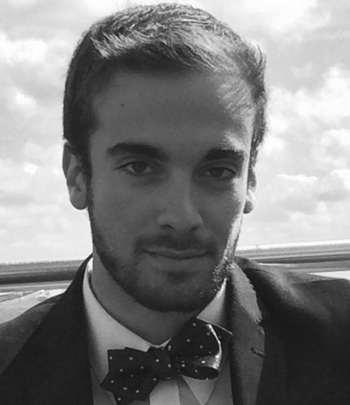Univ. of Hawaii student denied teaching certificate over controversial statements
A federal appeals court recently ruled that the University of Hawaii was within its rights to deny a teaching certificate to a candidate based on statements he made about adults having sex with minors and about schoolchildren with disabilities, but some are worried about the precedent this could set for punishing speech.
Mark Oyama enrolled in the secondary education certification program at the University of Hawaii’s Manoa campus in 2010, which is the state’s only nationally accredited institution that recommends students for certification as secondary school teachers. He had already earned a bachelor’s degree and master’s degree, and met the academic requirements in the teacher certification program.
The university found that his statements against bans on adult-child sex and that most special education students were “fakers” disqualified him to become a teacher. Oyama claimed that the university violated his First Amendment rights and sued in federal court. A lower court rejected his suit and the U.S. Court of Appeals for the Ninth Circuit upheld the decision.
"Oyama's statements concerning sexual relationships between adults and children were of central concern to the faculty," according to the ruling.
In a class assignment, he wrote: "Personally, I think that online child predation should be legal, and find it ridiculous that one could be arrested for comments they make on the Internet. I even think that real-life child predation should be legal, provided that the child is consentual [sic]. Basically from my point of view, the age of consent should be either 0, or whatever age a child is when puberty begins."
When a professor discussed the statements with Oyama, he said it would be fine for a 12-year-old student to have a consensual relationship with a teacher, but that he would obey the law and report the relationship even though he did not think it was wrong, according to the ruling.
In another class, Oyama said he doubted the value of including students with significant disabilities in mainstream classroom settings. He said he was “not convinced” that many people who claim to have disabilities really have them and that many benefit from “the crude opinions of psychologists and psychiatrists.”
The comments were relevant in determining whether he should be allowed to work as a public school teacher, the panel concluded, and the university's decision was "directly related to defined and established professional standards" at state and national levels.
"Therefore, the university's decision was, by necessity, prospective in nature," the ruling said. "Oyama stood in the doorway of the teaching profession; he was not at liberty to step inside and break the rules. But that does not mean that the university was obligated to invite him in. Rather, the university could look to what Oyama said as an indication of what he would do once certified."
In its decision, the court said its ruling was based primarily on case law about the role colleges and universities play in certifying teachers, and the role of higher education in professional certification.
"The First Amendment does not prevent the university from denying Oyama's student teaching application after determining that his statements reflected a failure to absorb these defined and established professional standards," the court said. The decision added that "we emphasize that the university did not 'establish' or 'define' these standards by fiat. Its decision was not, in other words, based on school policies untethered to any external standards, regulations or statutes governing the profession."
Eric Seitz, Oyama’s attorney, told the Associated Press that his client was “a socially awkward nerd” and that the ruling is troubling because it allows the university to censor opinions that are not acted upon.
"To me, it is outrageous for expressions of opinions — however misguided — in a classroom discussion that a student can be essentially kicked out of his educational program," he said.
Oyama said his statements were made "in an academic, intellectual setting," according to the ruling.
The university did not respond to requests for comment from Campus Reform.
The national nonprofit Student Press Law Center and the Foundation for Individual Rights in Education filed a friend of the court brief supporting Oyama when he appealed. The brief was prepared by University of California, Los Angeles law professor Eugene Volokh. The brief argued that the trial court’s decision was wrong and posed a serious risk to student free speech rights.
Volokh wrote an op-ed in the Washington Post on in response to the ruling that there could be serious implications to the decision.
“And of course the chill created by such decisions extends far beyond cases in which students actually are expelled (or denied access to parts of their educational programs, which amounts to the same thing) based on their speech,” he wrote. “Smart students will realize, when they hear about incidents such as Oyama’s, that they had better just avoid expressing certain views, simply because of the risk that what happened to Oyama (and others like him) will happen to them.”
Seitz said he would ask for a new hearing and take the case to the U.S. Supreme Court if necessary.
Follow the author of this article on Twitter: @kylejplantz

